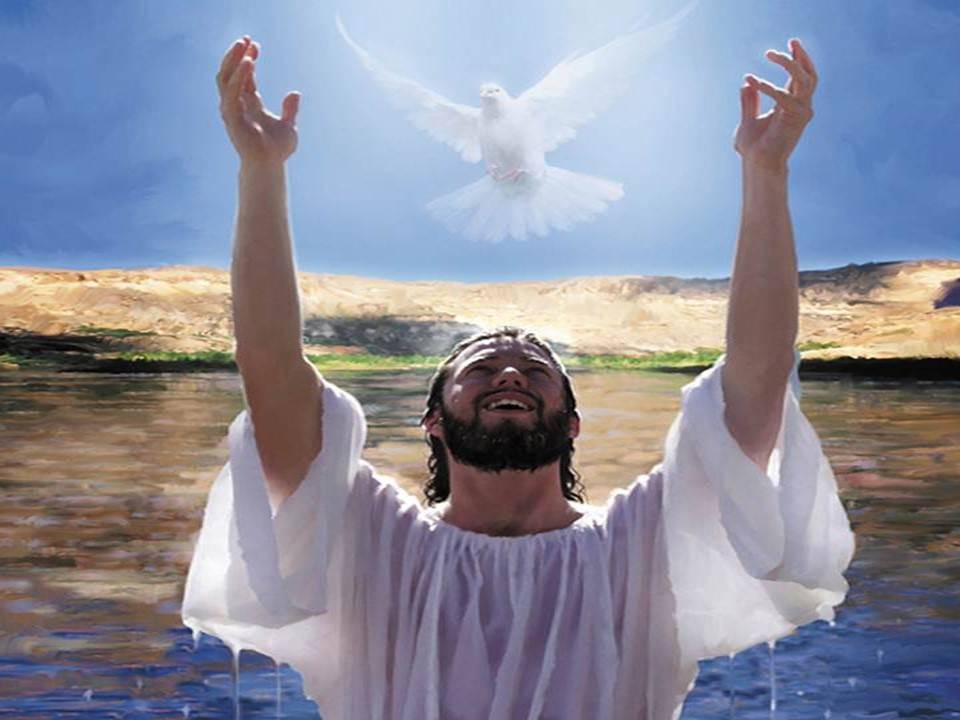LESSON 8
THE FIRSTBORN FROM THE DEAD: AN EXPOSITION ON JOHN'S WORDS IN REVELATION 1:5
You are welcome to another edition of Insights from God's Word, a Bible study programme that is committed to sharing God's Word by allowing the Bible to speak for itself.
In this edition, we continue with our series on The Godhead. The topic for this study is: "... the firstborn from the dead ...": An exposition on John's words in Revelation 1:5. The complete message in this text reads: "and from Jesus Christ, the faithful witness, the firstborn from the dead, and the ruler over the kings of the earth. To Him who loved us and washed us from our sins in His own blood" (Revelation 1:5, NKJV).
Several interpretations abound in Christendom in respect to the text in Revelation 1:5. It is my prayer that as we compare Scripture with Scripture, the Lord will lead us to arrive at the correct interpretation. From our previous lesson, we noted that the Greek word 'prototokos' which is translated firstborn in Colossians 1:15 can be interpreted in a variety of ways. We noted that it could mean the first born child in a family (see Luke 2:7) or it could be used to refer to someone who is preeminent in rank (see Jeremiah 31:9; Exodus; 4:22-23; Psalm 89:20-29; Colossians 1:15). Now, in respect to the context of our key text for this study, the expression firstborn from the dead can mean the first to resurrect from the dead or a resurrection that is preeminent in rank because of what it stands to achieve. We will now examine our key text (i.e. Revelation 1:5) in the light of these two interpretations.
Friends, in both the Old and New Testaments of the Bible, we find several stories of people who were resurrected from the grave through the quickening power of the Almighty God. Examples of these clear resurrections in the Old Testament include the son of a widow at Zarephath (1 Kings 17:8-22), the son of a Shunammite woman (2 Kings 4:36), and the man who was revived to life when his dead body touched the prophet Elisha’s bones (2 Kings 13:20-21). Besides these examples in the Old Testament, we find several others in the New Testament such as the 12-year old daughter of Jairus (Mark 5:22, 41), the son of a widow of Nain (Luke 7:11-17), Lazarus (John 11:17-44), those who came to life after the resurrection of Christ (Matthew 27:51-52), and the raising of Dorcas by the apostle Peter (Acts 9:36-41).
We can see clearly from the scriptural account of these stories that the majority of the resurrections took place before the resurrection of Christ. Thus, the expression firstborn from the dead cannot be interpreted in reference to Christ as the one who was resurrected first. Some have also suggested that Christ is the firstborn from the dead because He is the only One whose resurrection was not cut short by another death later on in His life. In as much as this is true of Christ, the Scripture gives some hints that make it clear that this fact is also true of another person.
From the book of Romans, we read these clear words from the apostle Paul: "Nevertheless death reigned from Adam to Moses, even over them that had not sinned after the similitude of Adam's transgression, who is the figure of him that was to come" (Romans 5:14). In the book of Jude, we find Michael, the Archangel contending for Moses' body from the devil after his death (Jude 1:9). During the transfiguration of Christ, we find Moses and Elijah coming to strengthen our Lord Jesus Christ to go through with His intended sacrifice for the human race (Luke 9:27-36). By putting these bits and pieces of Scripture together, it is clear that Moses was resurrected to heaven after his death. It is actually his resurrection that halted the seemingly reign of death over the human race. In his resurrection to the heavenly city never to die again, Moses became a figure of Him that was to come, even Christ (see Romans 5:14-21).
Beloved, the apostle Paul made it clear concerning Christ that "Death has no more a dominion over him" (Romans 6:9). Christ Himself also made this revolutionary statement: "I am he that liveth, and was dead; and, behold, I am alive for evermore, Amen; AND HAVE THE KEYS OF HELL AND OF DEATH" (Revelation 1:18; Capital Emphasis Added). Thus friends, the apostle John rightly described our Lord as the firstborn from the dead because His resurrection was preeminent in rank because of what it stood to achieve. It was through the resurrection of Christ alone that the resurrection of all of God's sleeping children was guaranteed. The apostle Paul made this point so clear in his first letter to the Corinthians. Let's go through the passage together:
"15:12 Now if Christ be preached that he rose from the dead, how say some among you that there is no resurrection of the dead?
15:13 But if there be no resurrection of the dead, then is Christ not risen:
15:14 And if Christ be not risen, then is our preaching vain, and your faith is also vain.
15:15 Yea, and we are found false witnesses of God; because we have testified of God that he raised up Christ: whom he raised not up, if so be that the dead rise not.
15:16 For if the dead rise not, then is not Christ raised:
15:17 And if Christ be not raised, your faith is vain; ye are yet in your sins.
15:18 Then they also which are fallen asleep in Christ are perished.
15:19 If in this life only we have hope in Christ, we are of all men most miserable.
15:20 But now is Christ risen from the dead, and become the firstfruits of them that slept.
15:21 For since by man came death, by man came also the resurrection of the dead.
15:22 For as in Adam all die, even so in Christ shall all be made alive.
15:23 But every man in his own order: Christ the firstfruits; afterward they that are Christ's at his coming."
(1 Corinthians 15:12-23)
Beloved, the clear point Paul is making in this passage is the importance of Christ's resurrection to the believer. Christ is become the "firstfruits of them that slept" or "firstborn from the dead" in respect of how his resurrection is preeminent in rank compared to all others. It is interesting to learn that the conclusion we have arrived at is so clearly spelt out in a twin text that expresses this same idea. The apostle Paul could not have summarized the points above in a better manner than this: "And he is the head of the body, the church: who is the BEGINNING, THE FIRSTBORN FROM THE DEAD; that in all things he might have the PREEMINENCE" (Colossians 1:18).
From the scriptural passages we have reviewed so far, it is clear that the text in Revelation 1:5 does not teach that Christ was the first person to be resurrected or the first to be resurrected never to die again. On the contrary, the text helps us to understand the significance of the resurrection of Christ for the believer. As Paul rightly put it, "17 And if Christ be not raised, your faith is vain; ye are yet in your sins. 18 Then they also which are fallen asleep in Christ are perished. 19 If in this life only we have hope in Christ, we are of all men most miserable" (1 Corinthians 15:17-19). But thanks be to God that Christ, who Himself is the Beginning (that is, Source of life; review Colossians 1:18), actually became the firstborn from the dead, so that through His resurrection the race of Adam will obtain a hope of a better life that transcends beyond the grave.
Exhortation: As Christ looked upon the grieving sister of Lazarus, His heart went out to the entire human race. From the lips of the Creator proceeded the following words of hope: "I am the resurrection, and the life: he that believeth in me, though he were dead, yet shall he live" (John 11:25).
In our next study, we will consider the topic: Melchizedek and the Son of God: An exposition on Paul's words in Hebrews 7:1-3. The Bible Study references for this study are Genesis 14:18-20, Psalm 110:1-4, Hebrews 7:1-28 and Hebrews 8:1-2. Please do well to go through these passages before the next study is released.
NOTE: Unless otherwise specified, all Scriptural References are from the King James Version of the Bible.
Stay blessed and keep shining for King Jesus.
Maranatha!
Powered by White Throne Ministries
















